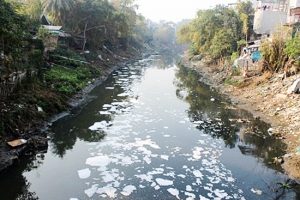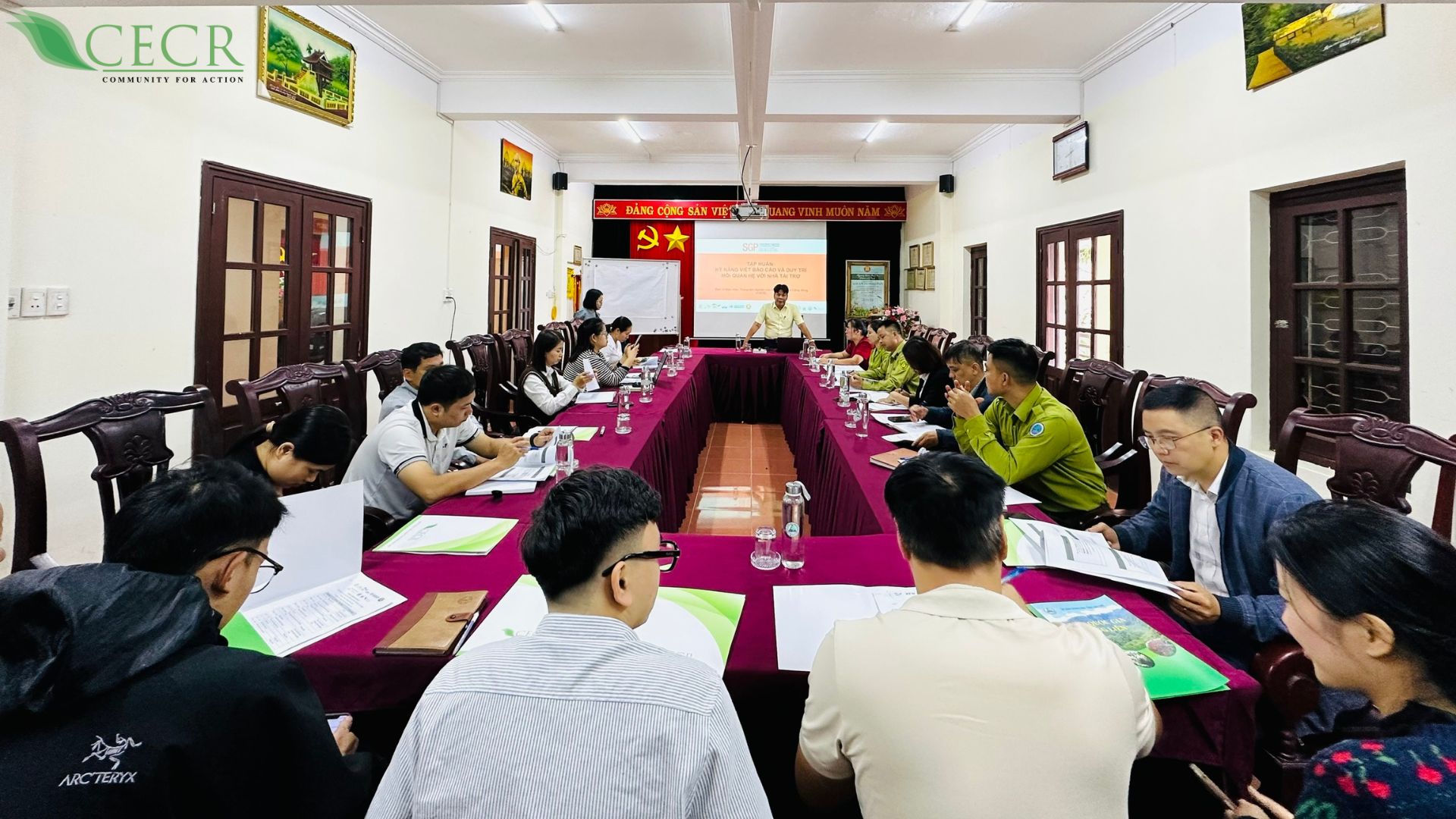 Regulations on environmental protection are scattered in many laws; many ministries are responsible for management, wastewater treatment leads to overlaps and lack of coordination in implementing the tasks of environmental protection; thus, the water environment pollution is still serious. This is confirmed by experts at the seminar “Clean water and sustainable development: the policy problem”.
Regulations on environmental protection are scattered in many laws; many ministries are responsible for management, wastewater treatment leads to overlaps and lack of coordination in implementing the tasks of environmental protection; thus, the water environment pollution is still serious. This is confirmed by experts at the seminar “Clean water and sustainable development: the policy problem”.
Many legal gaps
According to Assoc Truong Manh Tien, Chairman of the Vietnam Environmental Economics, although the system of laws and regulations has been amended and supplemented several times, the problem of seriously contaminated water resource is still unsolved. Specifically, the control of water pollution is stated in various legal documents such as Water Resources Act 2012; Environmental Protection Law and Decree 43/2015 / ND-CP stipulating establishment and management of water resources protection corridor. These documents have contributed to enhancing accountability of agencies, organizations and individuals for water quality, but according to the experts, they are not specific, not practical, not systematic, and they don’t solve the root of the problem. Meanwhile, water pollution treatment requires very specific approach, thus, when apply the law toward each river, stream, the law is no longer effective.
For example, although the regulations required factories, export processing zones to have concentrated waste treatment, there is a lack of specific guidelines, thus, a lot of violations are “punished”. Sometimes, the monitoring indicators are too general. Consequently, data on water pollution is not updated in time whether water monitoring systems are located throughout the provinces. An engineer from Polytechnic University of Ho Chi Minh City said that many regulations, monitoring the environment are not very practival. For example, the concentration of cyanide in waste water must meet certain standards but are allowed to trach at higher levels of steel production plants.
Besides, the lack of consistency and overlap in the responsibilities of managing river basins also cause water pollution remaining serious. As for water quality monitoring, the biggest challenge is the lack of inter-agency coordination mechanisms between the health, construction, agriculture, natural resources and the environment sector, leading to unequal supervising of water supply facilities. That is not included the process of assessing water quality using different testing methods leading to different results.
Change approach
According from this fact, many experts propose to build a separate law on water pollution control. However, specified how is the concern of many experts. Dr. Nguyen Thi Nhu Mai said that to resolve the legal the frame problem, we need to change the approach, going from the bottom up in the direction of details, in particular, as the discharge resource issues, regulations, standards and environmental monitoring. In particular, the economy each geographic region must have different regulations, and should not make general rules as currently.
Agreeing with that view, Dr. Nguyen Thanh Hai, Minister of Agriculture – Rural Development, said the construction of this law must clearly define the standards and regulations of water resources; and to assess the tolerance of each river as the current legislation of discharge standards is identified for each business, which does not include the load-bearing capacity of the river. Suppose too many factories discharge at once, although all factories ensured the discharge standards, the waste load is too large for the river to tolerate, can contaminate water sources.
“A specialized law requires clearly regulated objects, specific provisions on standards, and technical regulations. Therefore, people and businesses don’t have to search for too many laws, they can just focus on that cohesive and specified law. Launched a new law means to clarify the responsibilities of the main managing agency, to avoid kicking the ball to each other “- Mr. Nghiem Xuan Bach, former deputy director of the Department of Sciences Science, technology and Environment (ONA) said.
Source: People’s Deputies electronics
http://www.daibieunhandan.vn/default.aspx?tabid=81&NewsId=375278
Subscribe
Login
0 Comments


 Tiếng Việt
Tiếng Việt
